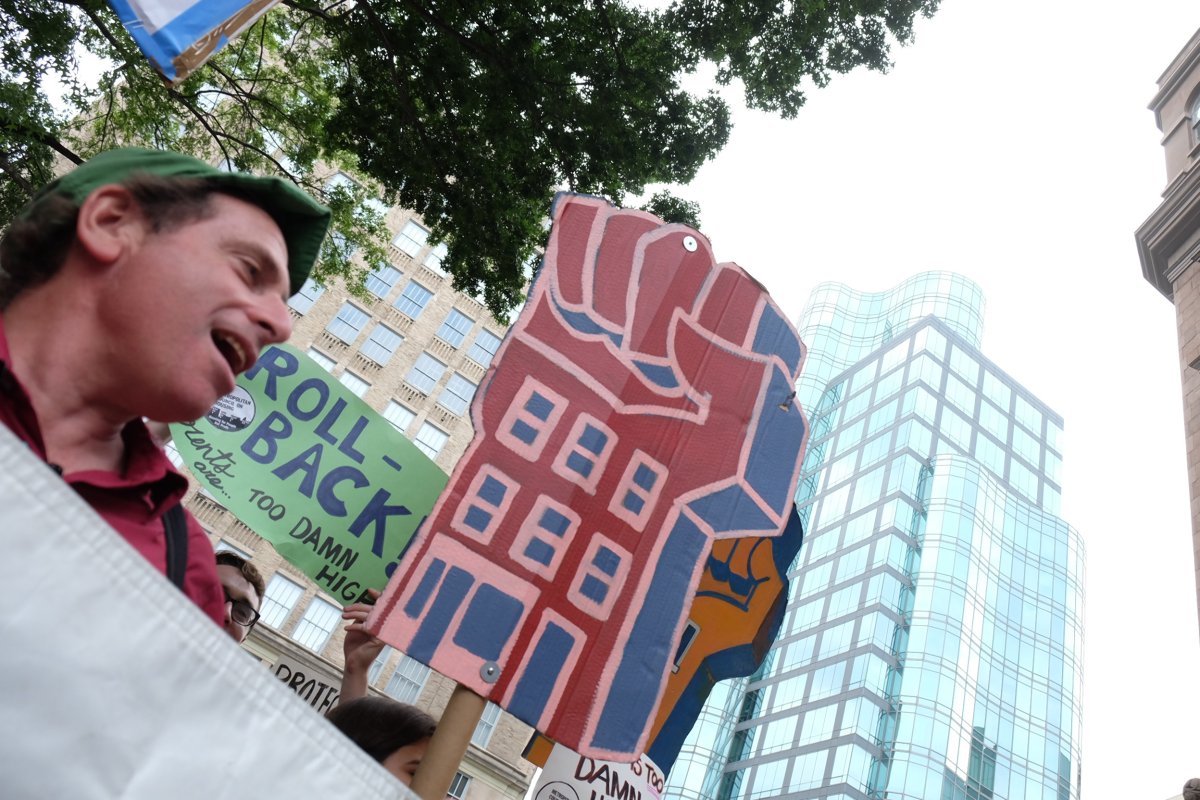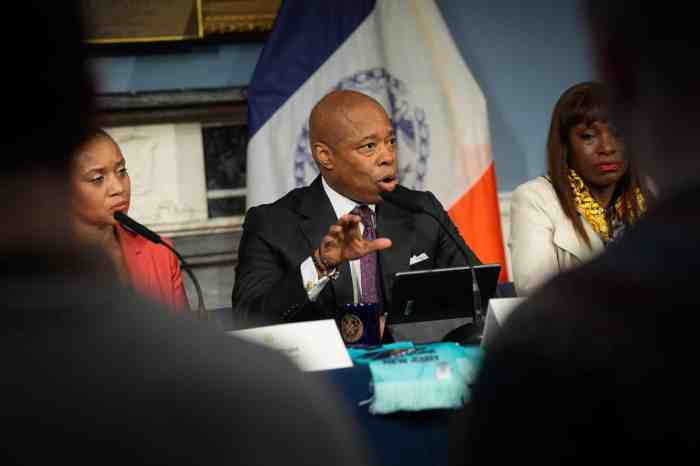
Tuesday evening, in the East Village, the Rent Guidelines Board bucked their trend of the past two years by recommending increases for lease renewals starting this coming October for rent-regulated apartments.
The board’s recommendations were 1 percent to 3 percent increases for one-year lease renewals and 2 percent to 4 percent for two-year renewals.
Given that there are still more than 1 million rent-regulated apartments in this city, the R.G.B.’s actions affect the welfare of perhaps upward of 2 million people — or nearly one out of every four of us.
Although the so-called “price index” for landlords’ operating and maintenance costs is up this year by 6.2 percent, landlords are still making a good profit on their properties. In other words, the price index is a flawed mechanism — since it only looks at landlords’ expenses and doesn’t consider the income they are raking in. Hence tenants’ chants of “Open your books!” at The Cooper Union Tuesday.
More to the point, beginning in 2008 during the Bloomberg administration, the R.G.B., in the words of Michael McKee, the prominent veteran tenant advocate, “went nuts in approving unjustified rent hikes, and continued this during the next six years — during the recession, when tenants were hanging on by their fingernails.”
As McKee puts it, “The partial rent freezes of the last two years only began to compensate tenants for the excessive rent hikes of the Bloomberg era. A rent rollback really is needed to correct the damage.”
Again, as for owners’ net profit, McKee noted, “If landlords’ costs go up, but their incomes go up faster, there can be no justification for a rent increase.”
We agree that a rent rollback — an actual rent reduction — is in order to rectify the unfair rent hikes under Bloomberg. Mayor de Blasio has pledged to tackle the inequities in what he calls “The Tale of Two Cities” of New York. What his R.G.B. has done over the past two years — he appoints all the board’s nine members — has been fantastic for middle-class and lower-class residents.
But now is not the time to cave. Yes, a 1 percent rent increase might seem small. But even a 1 percent year after year adds up, and soon one’s rent is hundreds of or a thousand dollars more than it once was. And, of course, usually the rent increases are more than 1 percent. Meanwhile, most workers’ salaries remain stagnant, and the city just keeps on getting more and more expensive.
The key question now is whether the R.G.B. must, in fact, vote “in the range” — within the recommended increases it proposed Tuesday night — when it makes its final decision in June. In other words, can the board still vote for a rent freeze or even a rollback — a rent reduction — in their ultimate vote?
According to McKee, they definitely can; there is nothing in the rent-regulation law or regulations that mentions “ranges” or having to stay within them.
Harvey Epstein, a tenant member on the R.G.B., told us that the Corporation Counsel — the city’s Law Department — “specifically told” the R.G.B. members this year that they “need to be within range.” Also, the board has never voted “outside the range,” he noted. Umm…so? There had never been a rent freeze, either, until two years ago. Is de Blasio just afraid to call for a third rent freeze?
We need clarity here. The more than 2 million rent-regulated New Yorkers deserve it. We have more than a month to figure this out. There is a legal answer here. There is also a moral one.

















